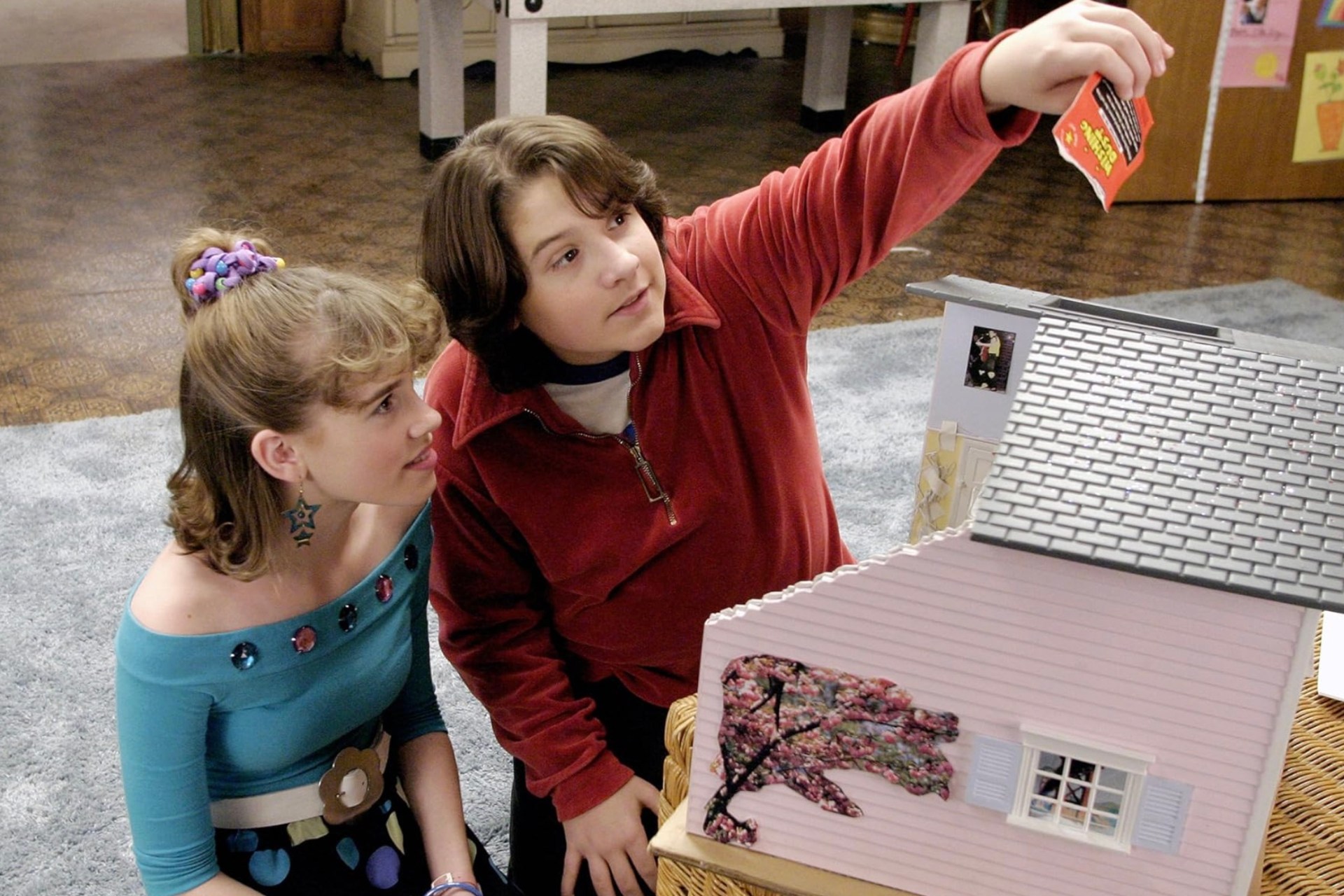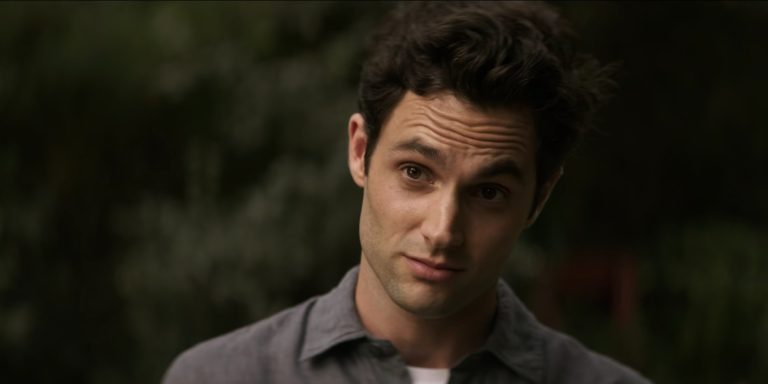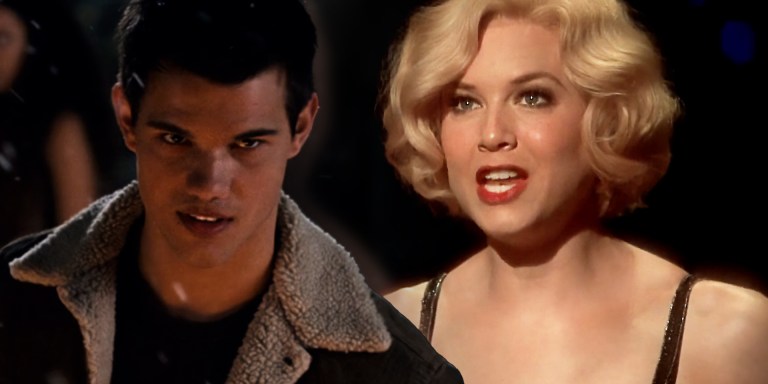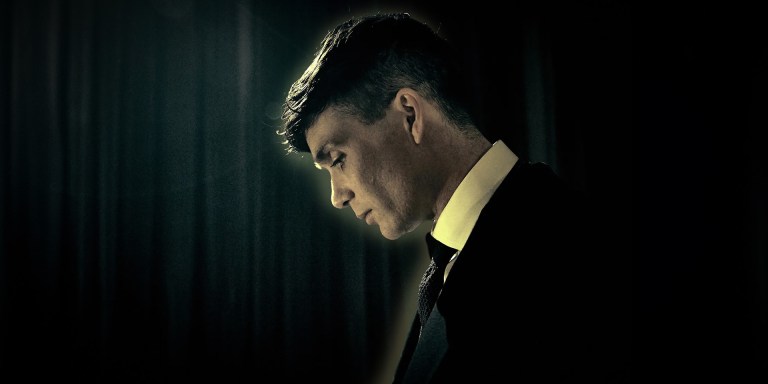13 Going on 30 remains one of those formative films we can’t forget. As teenagers, we would count down the days until we’d be “30, flirty, and thriving” and now, we still uphold Jennifer Garner’s Jenna as a rom-com role model. But just like many episodes of Friends in 2023, 13 Going on 30 hasn’t aged all too well.
Some of us associate 13 Going on 30 with a strong female lead who had career aspirations and an enviable sense of style. But when it came out in 2004, we didn’t realize that it may have been the most anti-feminist movie of the year, even when competing against films like Napoleon Dynamite and Eurotrip.
The way we remember it, 13 Going on 30 is an allegory to remind us there are things more important in life than being part of the most popular clique. Funnily enough, Mean Girls also came out in 2004. It was the era of wanting to be part of the cool girls … and not quite cutting it. But in both films, the way to get “cool” is to be mean, which is not “cool” at all.
In 13 Going on 30, Jenna goes to sleep 13 and wakes up 17 years later with her dream job, her dream best friend, her dream apartment, and a dreamy boyfriend. But considering she has no idea how she got there, she’s understandably distraught. So, she seeks out her middle school bestie, Matt, now played by the handsome Mark Ruffalo. And although Matt was “dorky” back in middle school, he’s now an attractive New York City photographer. He had the definition of a glow-up. Naturally, this makes him Jenna’s love interest. The fact that she should only realize she has feelings for him when he’s conventionally attractive is the antithesis of loving him for who he is. And this prioritization of looks over personality feeds into the ideals of the male gaze.
Throughout the film, Jenna realizes that she only reached her goals because she was mean to everyone—her assistant, her colleagues, her boyfriend, and even her frenemy, Lucy Wyman (Judy Greer). She became the cutthroat queen bee she admired and ditched Matt in the process. The lesson of the film: even if you get everything you want, you won’t be happy if you’re not true to yourself. And in her heart, Jenna is a kind and generous person.
But this “message” is also a major feminist red flag. Because what is Jenna’s happy ending? She ends up with Matt in a home in the suburbs. While this may be a happy ending for some women, Jenna seems to have given up career aspirations to be with Matt. Sure, she gets the guy in the end (who she didn’t even want in the beginning), but what about everything else? We have no idea if she ends up working for Poise. We doubt that she ever lives in her hip New York City apartment and, considering she and Matt started dating at 13 years old, it’s unlikely that she ever prioritized female friendships.
Watching 13 Going on 30 today leaves us feeling a bit empty like Jenna missed out on an opportunity to get to the top. But if the career piece of antifeminism isn’t resonating, don’t fret. The fact that Jenna falls for her male bestie is also a classic patriarchal movie trope. It’s hinted that Matt is clearly in love with Jenna during their teenage years. The film suggests that even though Jenna doesn’t see him as a romantic interest, she should like him back because he’s the “nice guy.” And don’t forget, he glows up into Mark Ruffalo, so it’s okay if she’s not attracted to him when they’re 13.
In 2004, this may have been an attempt to say that looks don’t matter in love (despite saying they do matter by casting a conventionally attractive actor as older Matt). But today, we can easily cut right through the patriarchal drivel. Why should Jenna like her forlorn friend back just because he likes her? In some ways, he’s in the wrong in their friendship; it’s clear that Matt is friends with Jenna because he wants to date her. It’s a deceptive ulterior motive.
Matt is still a supportive friend to Jenna, but he’s also possessive of her. While he wants to protect her from the mean girls at school, it’s not his place to control what Jenna does or who she hangs out with. And instead of pursuing her dreams and female friendships, she focuses on making a life with Matt. She puts him before herself, and that’s the least feminist thing she could do.
But here’s the thing. I don’t want to be a party pooper. I still loved rewatching 13 Going on 30! So I had to find a lesson that doesn’t make me hate a film I once loved. And, the biggest takeaway is to be your authentic self and not give in to the trends simply because they’re “cool.”
Jenna does her best work at Poise when she goes against the grain and follows her heart. And she’s happiest when she spends time with people who love her for who she is, not for her money or reputation. So Jenna may not be a textbook feminist by the end of 13 Going on 30, but at least she’s the most authentic version of herself.







